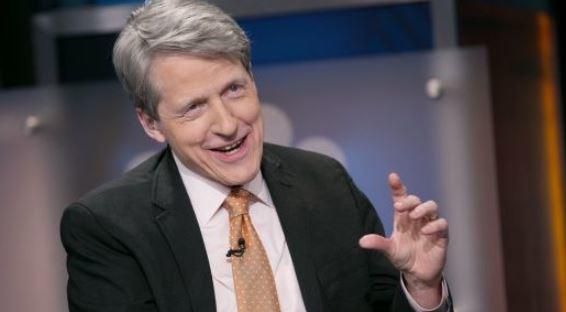It seems like only yesterday that Robert Shiller, a Nobel-Prize winning economist (and esteemed member of the Yale School of Management’s faculty), was telling anybody Robert Shiller, that the US equity market was headed for a vertigo-inducing correction.
But with stocks once again hovering near record highs, it seems that Shiller – the co-creator of the Shiller P/E ratio – has become the latest CNBC stalwart to throw in the towel. While sell-side banks (most recently SocGen) are increasingly focusing on the fallout from the Trump trade war, Shiller has pivoted to an analysis of other Trump economic policies like the Trump tax cuts and his rollbacks of regulation, which, taken together, have provided an unprecedented level of support to corporate America, per Bloomberg.

While he once lambasted President Trump as “totally unbecoming and unfit”, Shiller demonstrated a newfound reverence for Trump and his policies during his latest interview (we can only imagine why).
Shiller’s focus instead is on President Donald Trump’s support for corporate America, which he says is driving sentiment and market strength. The S&P 500 Index has climbed almost 9 percent this year, with the total return to investors running at an annual rate of more than 14 percent. It closed Thursday less than 0.5 percent from its August record high.
“It has something to do with our president, who is an exceptionally business-oriented president and who wants to deregulate and favors lower taxes,” he said. “That has an effect on the market but it goes beyond the rational, logical effect – it has something to do with our animal spirits. The U.S. is just doing great right now in terms of the strength of the economy and the stock market. That seems to be built around the Trump story at this point in history.”
And while the economist raised a stink last year as his vaunted Shiller P/E index surpassed its pre-crisis levels, the Yale professor is now using the tech boom (when companies’ near-$0 earnings caused the ratio to blow out to unprecedented levels) as his preferred reference point.











Leave A Comment